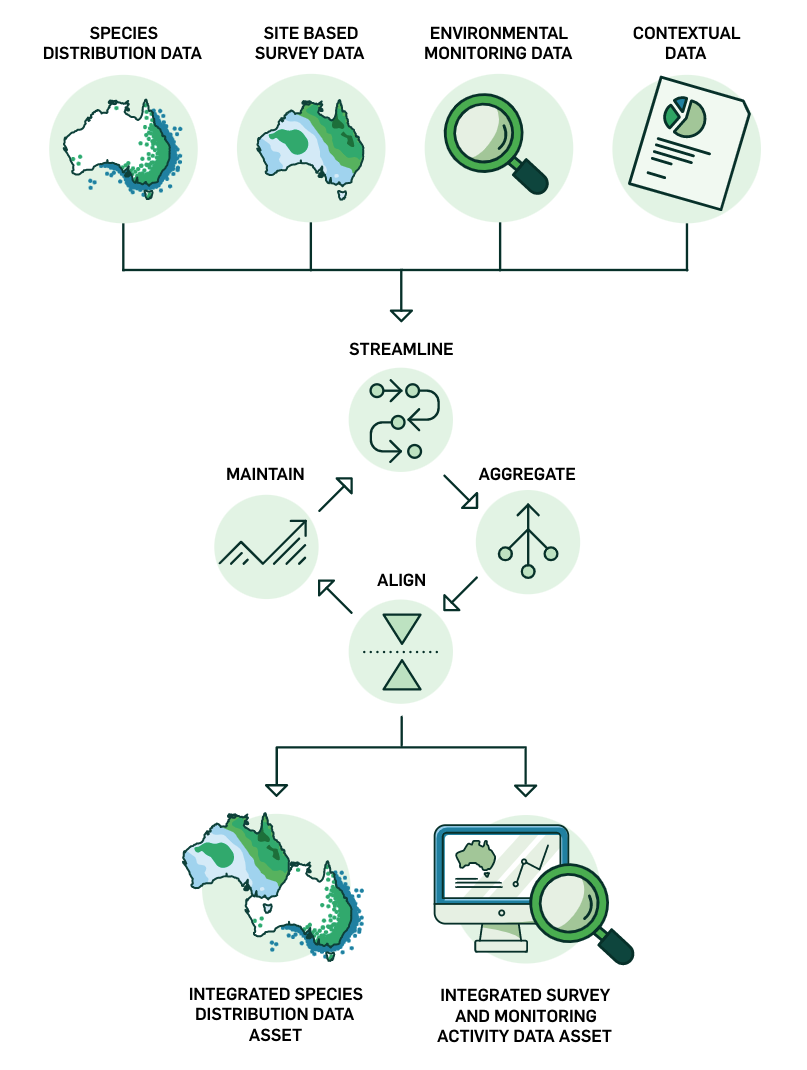EcoAssets is now live!
Through EcoAssets, the Atlas of Living Australia (ALA), Integrated Marine Observing System (IMOS) and Terrestrial Ecosystem Research Network (TERN) are delivering open, integrated data to support national environmental reporting and assessment needs.
Having access to quality data with a broad reach is critical to this kind of national reporting, such as the recently released State of the Environment Report.
Until recently, the data required for environmental assessment have only been available through separate data systems. Datasets historically have not been well integrated to support environmental reporting, especially at national, state and territory levels. By making it simpler and faster to obtain integrated data, EcoAssets will enhance reporting efforts, and support improved environmental decision-making.
Streamlined data to increase reporting capabilities
Seven datasets are now publicly and freely available for biodiversity reporting and assessment. The primary biodiversity data asset offered by EcoAssets is the aggregated Australian species occurrence data asset, which enables users to explore the data by threatened species status, bioregion, protected area category, and more. This provides coverage for Australian terrestrial and marine systems. A future release will include an environmental monitoring and observation summary dataset.
By increasing alignment between data, the research infrastructures have created not only these first release datasets, but also data pipelines to ensure each data asset can be updated at regular intervals – speeding up reporting and assessment efforts in the future.
Partnerships
EcoAssets is made possible through partnerships between three National Collaborative Research Infrastructure Strategy (NCRIS) projects including the Atlas of Living Australia (ALA), Terrestrial Ecosystem Research Network (TERN) and Integrated Marine Observing System (IMOS). This is in partnership with the Australian Government and with support from Australian Research Data Commons (ARDC).
More information
You may like to read more about the datasets, and explore the EcoAssets website.
